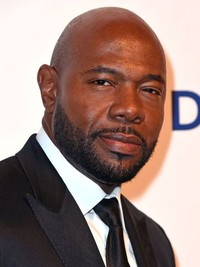Antoine Fuqua

American film director and producer Antione Fuqua got his start in the world of music videos, but soon became one of the most sought-after action directors in all of Hollywood, not to mention a regular collaborator for stars like Denzel Washington. Born on January 19, 1966 in Pittsburgh, PA, Fuqua did not immediately gravitate towards cinema as a career: he originally wanted to fly jets in the military, and therefore studied electrical engineering in college. However, he soon found himself behind the camera, helming music videos for the likes of Toni Braxton, Coolio, Stevie Wonder, and Prince. Fuqua's debut film as a director was "The Replacement Killers" (1998), an action thriller starring Chow Yun Fat and produced by Hong Kong action legend John Woo. The film was a critical and box office bomb, and Fuqua's next film, the Jamie Foxx-starring comedic crime saga "Bait" (2000), suffered an even worse fate, grossing only $15 million against a $51 million budget. Undeterred, Fuqua's persistence paid off on his next film, the low budget, gritty police procedural "Training Day" (2001). Written by David Ayer, the film follows a fateful 24 hours in the life of a rookie cop (Ethan Hawke) and his dangerous, corrupt senior partner (Denzel Washington) as they patrol the gang-ridden neighborhoods of the LAPD Rampart Division and South Central Los Angeles. The film received positive reviews from critics and grossed over $100 million worldwide, It also made Fuqua and Ayer Hollywood power players practically overnight, earned Hawke his first Oscar nomination, and helped crown Washington as only the second black man in history to win a Best Actor Oscar, thanks to his instantly iconic performance as the dastardly Alonzo Harris. Unfortunately, despite the massive success of "Training Day," Fuqua would soon find himself back at square one. His next film, the military drama "Tears of the Sun" (2003) was a critical and commercial bomb, and its follow-up, "King Arthur" (2004) was a commercial disaster. Reports of on-set tensions between Fuqua and the studio were widely reported, culminating in the film being taken away from Fuqua in post-production (he eventually released his own director's cut). More controversy ensued when Keira Knightley's breasts were enlarged for the U.S. poster, angering the star greatly, and when the film was finally screened for critics, many were taken aback by how much the film diverts from typical Arthurian legend. In other words, despite strong foreign grosses, "King Arthur" was tainted before it was even released, and the usually prolific Fuqua would not make another film for three years. His next film, "Shooter" (2007) was a back-to-basics homage to conspiracy thrillers of the 1970s, starring Mark Wahlberg as a Force Recon vet caught up in an assassination plot. While critics were lukewarm on the film, it did well at the box office, allowing Fuqua to return to his crime drama roots with his next film, the sprawling character piece "Brooklyn's Finest" (2009). Fuqua went populist with his next film, the action heavy, "Die Hard" (1988) inspired thriller "Olympus Has Fallen" (2013), about a disgraced Secret Service agent (Gerard Butler) who goes rogue to save the President of the United States (Aaron Eckhart) from North Korean terrorists. While the film was savaged by critics, it was a big hit at the box office, and eventually spawned a sequel, "London Has Fallen" (2016), which was not directed by Fuqua. His next film, "The Equalizer" (2014), reunited Fuqua with Denzel Washington, and turned a remake of a mostly forgotten 80s TV series into a sleeper hit. For "Southpaw" (2015), Fuqua was originally supposed to direct Eminem in his return to acting, but the part of a disgraced boxer looking for an impossible comeback eventually went to Jake Gyllenhaal. Fuqua brought out the big guns for his next film, "The Magnificent Seven" (2016), a remake of the 1960 western of the same name, and the Akira Kurosawa classic "Seven Samurai" (1954), which brought together a huge cast, including Washington, Hawke, Chris Pratt, Vincent D'Onofrio, and Peter Sarsgaard. His next film, "The Equalizer 2" (2018), marked the first time Washington has appeared in a sequel to one of his earlier films, and was a hit with both critics and audiences.